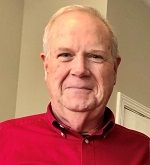Research, Research, Research

ENGL 5106 has challenged me in ways I needed to be challenged. The last college courses I took before starting this program in August were in my final quarter at UGA in December, 1980. During that final quarter, I took Fortran Programming with punch cards - technology from the 1950s. However, I was proud of the technologically advanced Texas Instruments (TI) -30 that I bought for around $25. I still have it, and it works. That was a lot of money considering that our rent in married housing was $100 per month, and home game season tickets for that national championship year were a buck per game.
Of course I've kept up with technology, but the merging of my love of writing with the digital age has shown me that there are tools that, when the time is taken to learn to use them correctly, broaden the scope and magnitude of the impact we can have by making the complex understandable. But, we must understand the complex first, and the only way to do that is through extensive research.
I've made some edits in the course project over the last few weeks, but nothing of much significance while learning how to edit. I realized today that we didn't have a section on the importance of research to Technical Writing in the Digital Age. Adding that section is probably the largest contribution I've made. The project has been a good trial and error instructor with immediate feedback.
I haven't been an IT guru throughout my career, but I have been an in-depth researcher. It's sad, but much of what one learns when starting a career is based on "that's what I was told", or, "we've always done it that way." It took years for me to determine that some of what we were teaching in our training was a "best management practice" that was someone's opinion and not a regulatory requirement. I learned then, and now require of others, to provide citations for everything we claim to be factual.
Lannon and Gurak provide great strategies for the research process in Part 2 of their book. Too many people make daily decisions about their lives based on what they call the "surface level" of research - popular and social media. WebMD has some good information, but if you try to self-diagnose almost any ailment using it there's a good chance you'll believe you're going to die. I don't need a citation for that statement because I have family members who have been empirical proof.
Words have meaning. They have power. They can educate. They can mislead. They can clarify. They can give hope.
When hiring a new employee fresh out of university, we remind them that the most important things they learned in higher education aren't always the answers themselves, but the methods used to find the answers. That's what good research does. It delves into the complexities of an issue and provides a conglomeration that becomes an answer.



Comments ()